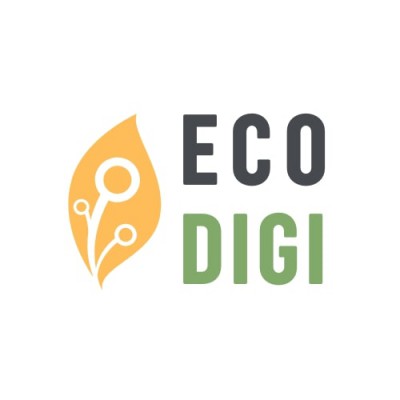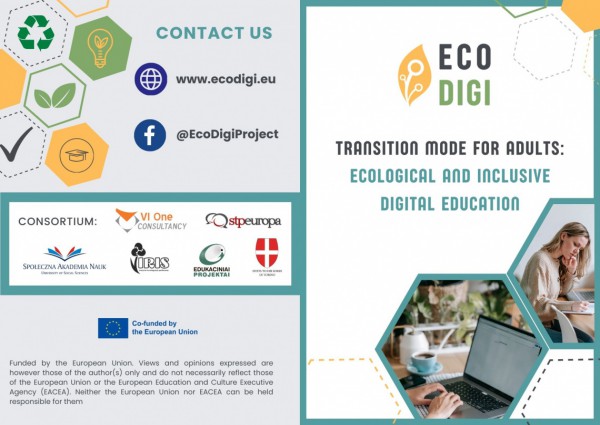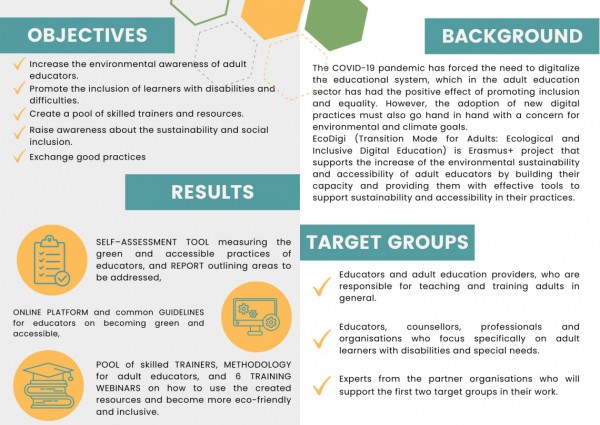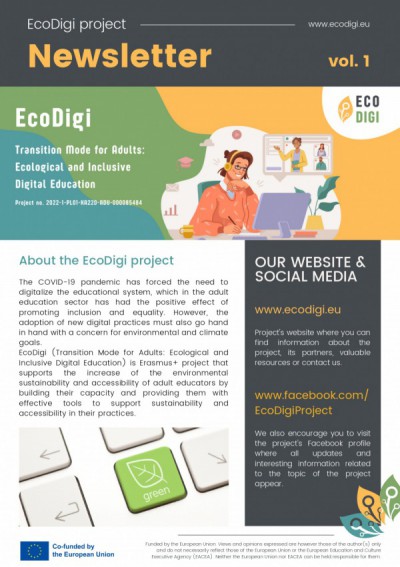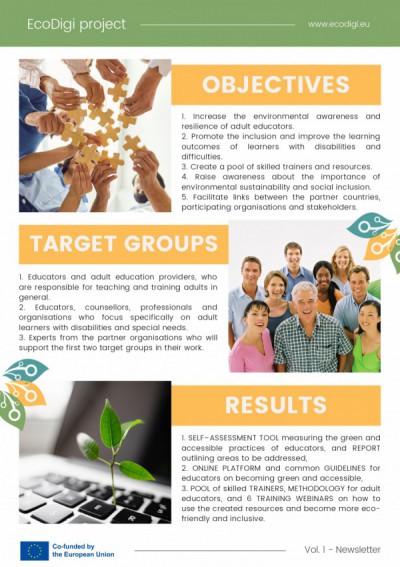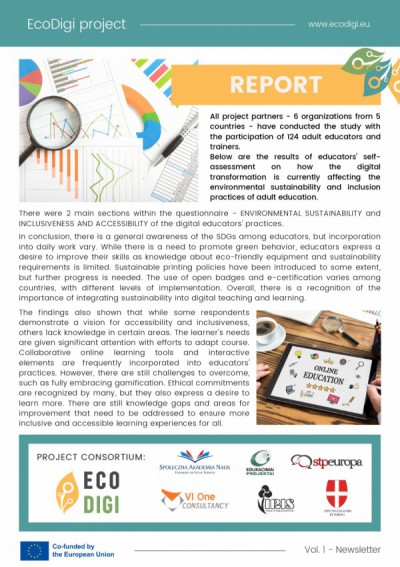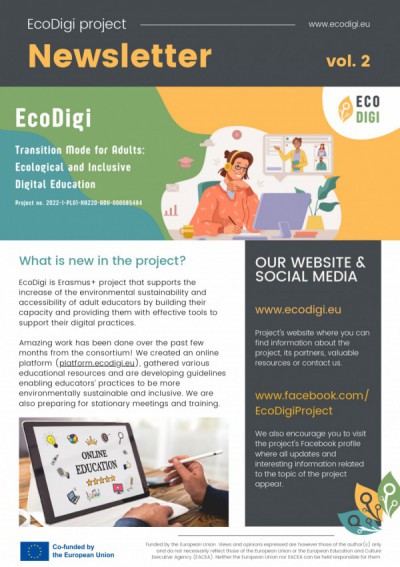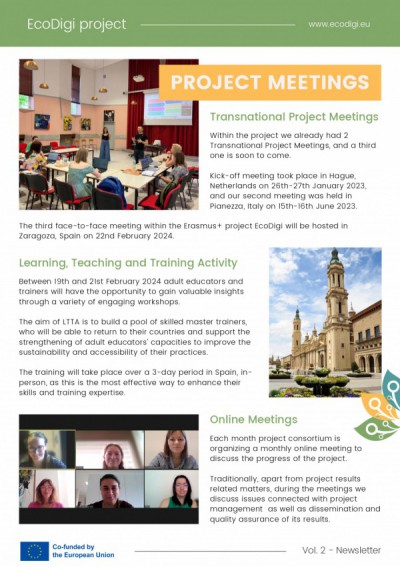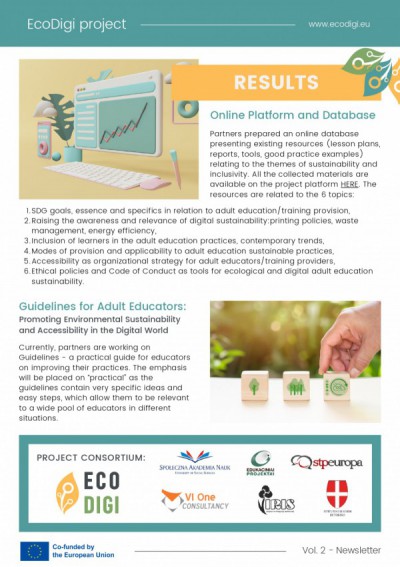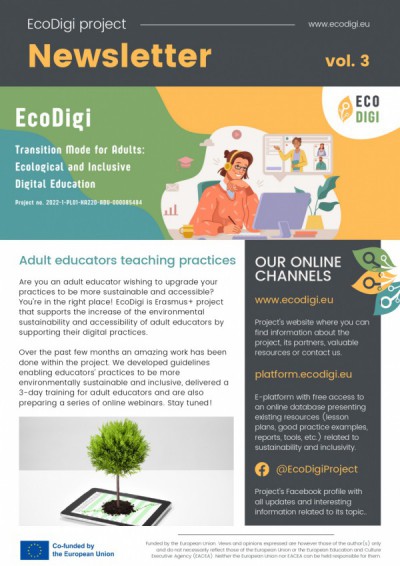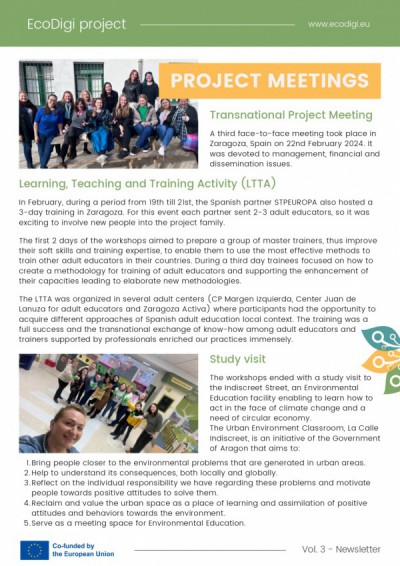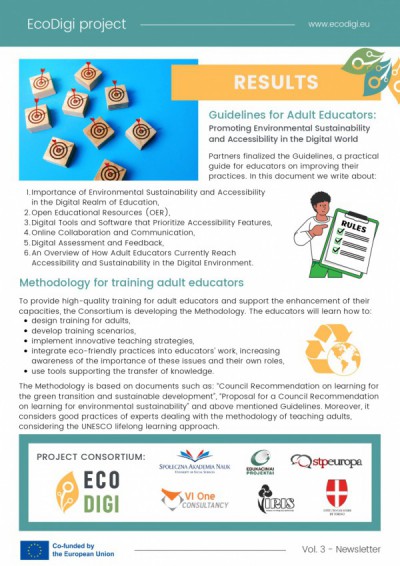EcoDigi - Transition Mode for Adults: Ecological and inclUsive Digital Education
The COVID-19 pandemic has forced the need to digitalize the educational system. Formal and non-formal education is becoming more and more digital. In the adult education sector this has had the positive effect of promoting inclusion, as distance learning enables the participation of adults who would otherwise be excluded for various reasons. On the other hand, the digitalisation of the education system has not paid much attention to environmental goals and sustainability, or to inclusion and diversity; it takes place primarily though platforms with high carbon emissions and many platforms and digital tools are not adapted for learners with special needs. The project proposal aims to support adult educators and educational institutions to adopt more eco-friendly practices and to adapt their learning offer for learners with special needs.
Duration:
01/11/2022 - 30/10/2024
More information about project:
International Cooperation and Projects Department (e-mail: international.projects@san.edu.pl)
This publication [communication] reflects the views only of the author, and the Commission cannot be held responsible for any use which may be made of the information contained therein.
Co-funded by the European Union. Views and opinions expressed are however those of the author(s) only and do not necessarily reflect those of the European Union or Fundacja Rozwoju Systemu Edukacji. Neither the European Union nor the granting authority can be held responsible for them.




